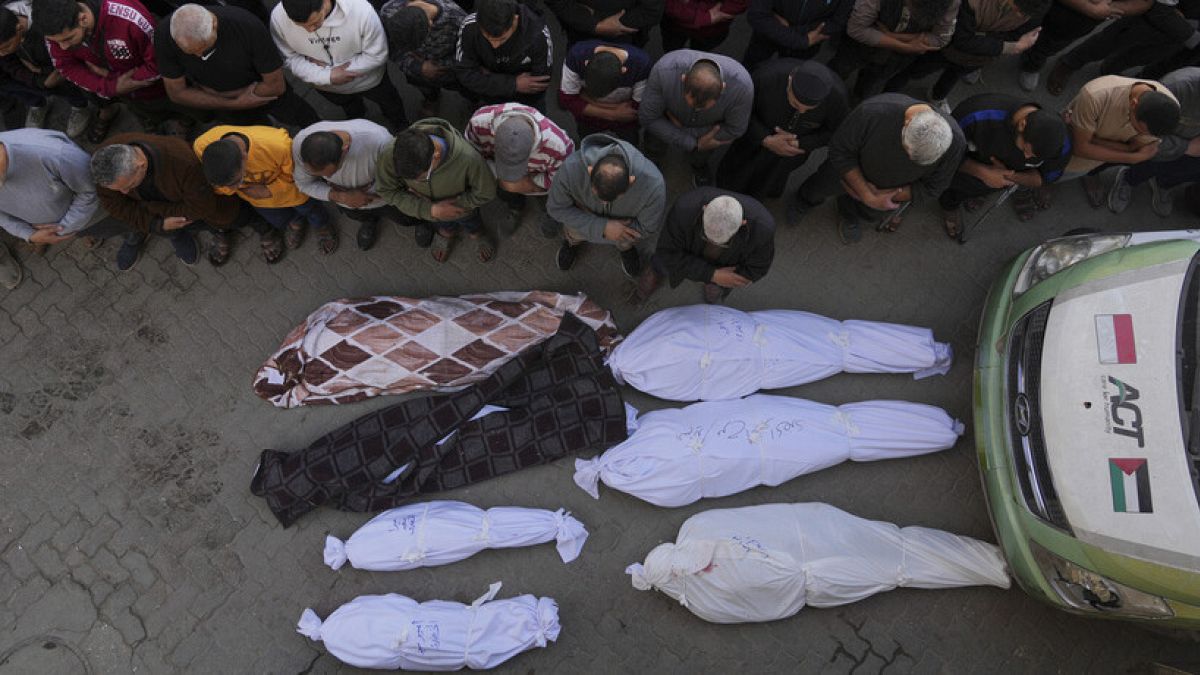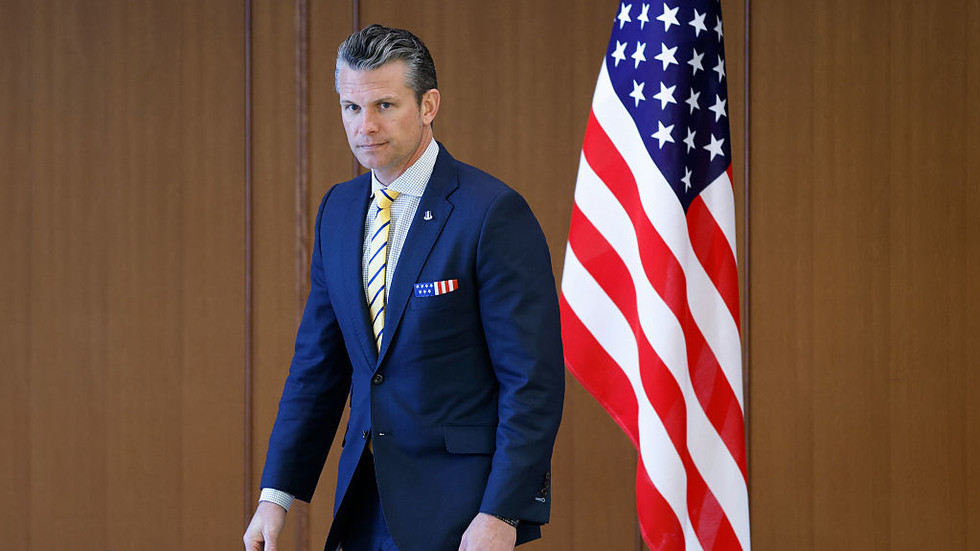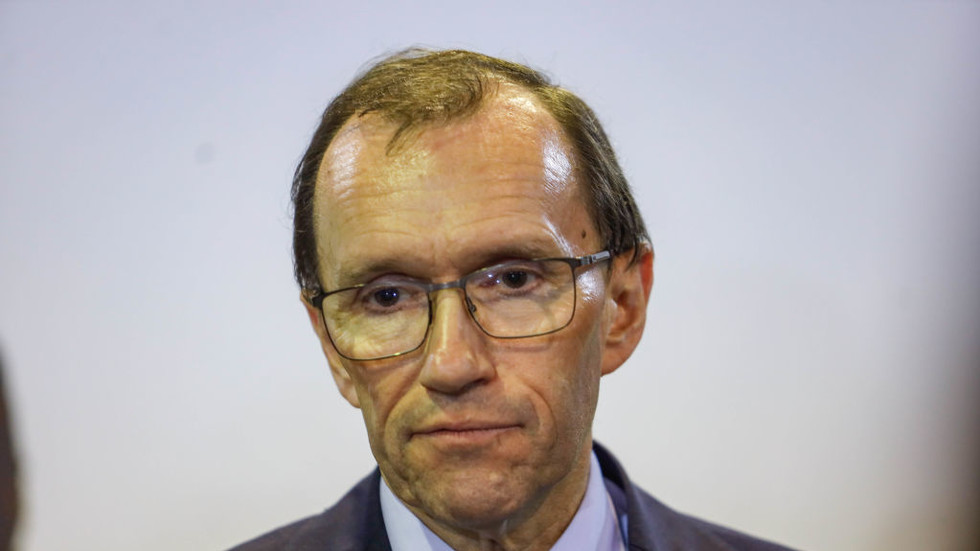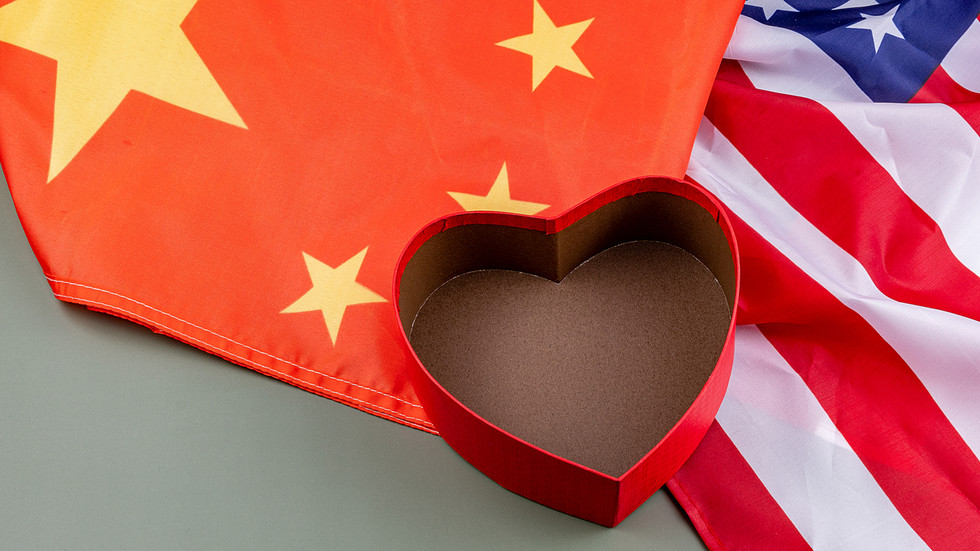In 2024, member states collectively spent an average of 1.9% of GDP on defence, while Russia was spending 9%, Kaja Kallas told the audience of the European Defence Agency annual conference on Monday.
The European Union must boost its defence spending to "prepare for the worst" and be able to defend itself "alone if needed" against a belligerent Russia, the EU's top diplomat Kaja Kallas said on Wednesday.
"Many of our national intelligence agencies are giving us the information that Russia could test the EU's readiness to defend itself in three to five years," Kallas told the audience at the European Defence Agency's annual conference in Brussels.
She highlighted that Russia can, in three months, produce more weapons and ammunition than the 27-country bloc collectively can in 12 months. "President Trump is right to say that we don't spend enough."
Over the next decade, the EU will need at least €500bn to remain competitive in defence, and so far, only around €13bn has been earmarked for defence and security in the EU's long-term budget from 2021 to 2027 (representing 1.2% of the total).
The EU traditionally allocates around 1% of the bloc's GDP (€1.2 trillion) to fund policy priorities ranging from agriculture to socio-economic cohesion between the poorest and richest regions under the long-term budget, which is due to be negotiated again in summer 2025 for the seven-year period starting in 2028, where defence will be a key priority.
"We need investment from member states and the private sector, but also from the common European budget. We must spend more than 1%," the EU's top diplomat said.
Last year, member states collectively spent an average of 1.9% of GDP on defence. Russia, on the other hand, was spending 9%.
Lithuania recently announced it would increase its defence spending to between 5% and 6% of GDP from 2026 due to the threat of Russian aggression in the region, but some large economies such as Italy and Spain still fall short of NATO's 2% target.
"Defence is a highly skilled, highly intensive industry which requires money, people and time. We have money and people, but we don't have time. Ukraine is buying us time," Kallas argued.
"We do not need a European army. We need 27 European armies that are capable and can effectively work together to deter our rivals and defend Europe, preferably with our allies and partners, but alone, if needed," she said.
Similarly, France's President Emmanuel Macron called on Monday for Europe to "wake up" and step up its defence spending to reduce its dependence on the US for security.
“What will we do in Europe tomorrow if our American ally withdraws its warships from the Mediterranean?" he asked an audience of French military service members at the Army Digital and Cyber Support Command in western France. "If they send their fighter jets from the Atlantic to the Pacific?”
The EU's top diplomat also echoed the words of the head of the transatlantic alliance, Mark Rutte, who said in December that European citizens would have to make sacrifices such as cuts to their pensions, health, and security systems to pay for increased defence spending and ensure long-term security in Europe.
The NATO secretary general admitted that while there was no imminent threat to allies, the danger was moving "at full speed" towards the transatlantic alliance. "We are not at war, but certainly not at peace either," he said.
The newly appointed European Commissioner for Defence and Space, Andrius Kubilius, agreed that a collective approach can make a big difference to Europe's preparedness for military, if not hybrid, threats.
"We can no longer afford the fragmented approach. We need a real Big Bang approach to increase defence production and acquisition," the former Lithuanian prime minister told the audience at the EDA conference.
Kubilius stressed the need for interoperable weapon systems, aggregated demand for the defence industry, and more projects of common European interest, such as the air defence shield, the cyber shield, and the Northern and Eastern Border Initiative.
"The EU's message to the US is clear. We must do more for our own defence and shoulder a fair share of responsibility for Europe's security," concluded Kallas.

 2 months ago
27
2 months ago
27






 We deliver critical software at unparalleled value and speed to help your business thrive
We deliver critical software at unparalleled value and speed to help your business thrive






 English (US) ·
English (US) ·